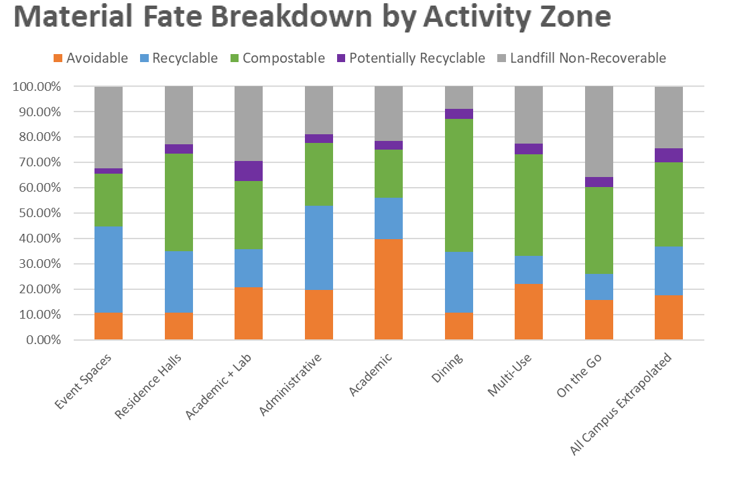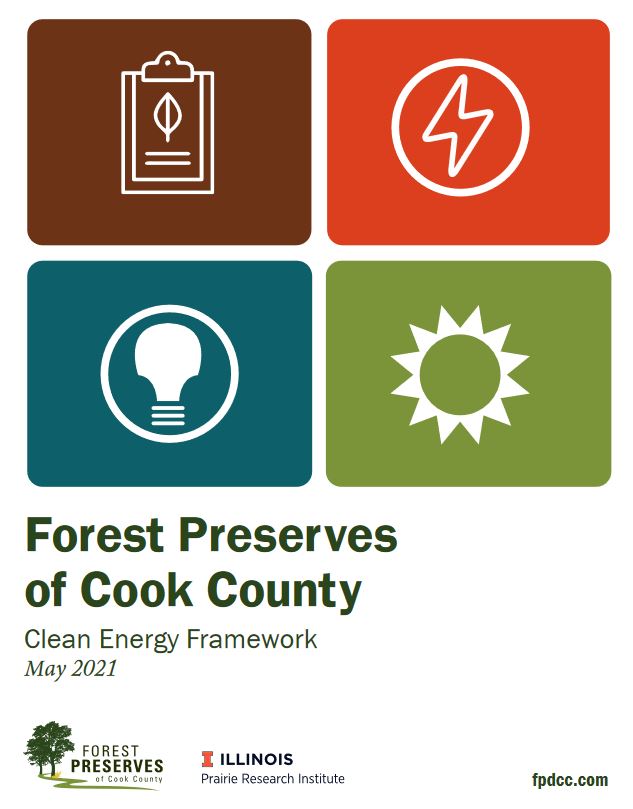
ISTC’s Technical Assistance Program (TAP) and the Forest Preserve District of Cook County (Forest Preserves) have a history of working together to improve sustainability. In 2014, the Forest Preserves, a public agency responsible for protecting and preserving nearly 70,000 acres of natural areas and public open space, engaged TAP to evaluate the current state of materials management operations, assess opportunities for improvement, and take steps toward making the Forest Preserves a national leader, among similar organizations, in waste reduction practices. The success of that project led the Forest Preserves to engage TAP to assist in developing and implementing their Sustainability and Climate Resiliency Plan, which was released in September 2018. That plan hinged upon an overall goal to reduce the Forest Preserves’ greenhouse gas (GHG) emissions by 80% by 2050 from a 2016 baseline. It also identified a road map for Forest Preserve lands to be resilient in a changing climate, recognizing that such conditions will significantly impact land management operations as the range and distribution of species shift, along with the availability of water and other key aspects of the local ecosystem.
On January 22, 2019, in response to a United Nations International Panel on Climate Change report, which demonstrated that the consequences of man-made climate change will become irreversible in 12 years if global carbon emissions are not immediately and dramatically reduced, the Forest Preserves of Cook County Board of Commissioners unanimously adopted a Net Zero Resolution. This resolution revised the 80% GHG emissions reduction goal to net-zero by 2050, as well as reducing facility GHG emissions by 45% by 2030 and committing to the development of a renewable energy plan.
TAP is currently working with the Forest Preserves on updating their Sustainability & Climate Resiliency Plan accordingly, while simultaneously assisting with the implementation of previously identified objectives and strategies to achieve their ambitious GHG reduction goals.
The most recent result of this collaboration is the development of a Clean Energy Framework, modeled after the Cook County Energy Plan. The Forest Preserves of Cook County Clean Energy Framework documents existing conditions through a needs assessment and review of current initiatives. Further, it prioritizes renewable energy technologies and strategies which the Forest Preserves might employ and creates a roadmap to achieving the Forest Preserves’ 2030 and 2050 goals. A Net Zero Emissions implementation schedule is presented, and the relationships between the Clean Energy Framework objectives and the objectives of the broader Sustainability & Climate Resiliency Plan are outlined.
Within the Framework it is noted that to actualize the goals and strategies outlined, energy conservation and efficiency of the many existing facilities must be prioritized and continuously pursued to reduce the existing operational footprint of the Forest Preserves. On a parallel course, the concept of green building must be thoroughly explored, redefined, and codified to embody building operations, ecosystem services, and renewable energy generation, fully encompassing the Preserves’ values of environmental stewardship and fostering human well-being in any building upgrade or new building project. Simultaneously, the Forest Preserves must aggressively pursue vetting, selecting and ongoing implementation of on-site renewable energy systems, coupled with collaborative pursuit, in partnership with Cook County, of a large-scale renewable energy installation, and sourcing of RECs to account for any emissions balances.
Principal authors of the Framework include Anthony D. Tindall, Policy & Sustainability Manager of the Forest Preserves of Cook County, along with April Janssen Mahajan, Joy Scrogum, Savannah Feher, and Shantanu Pai of TAP. Jennifer Martin of TAP was also among the advisors for the report.
The Clean Energy Framework was finalized in May 2021 and adopted by the Forest Preserves’ Board of Commissioners in June 2021. The Framework is available for download at https://fpdcc.com/downloads/plans/FPCC-Clean-Energy-Framework-071221.pdf.
For more information on the ISTC Technical Assistance Program, see http://go.illinois.edu/techassist.


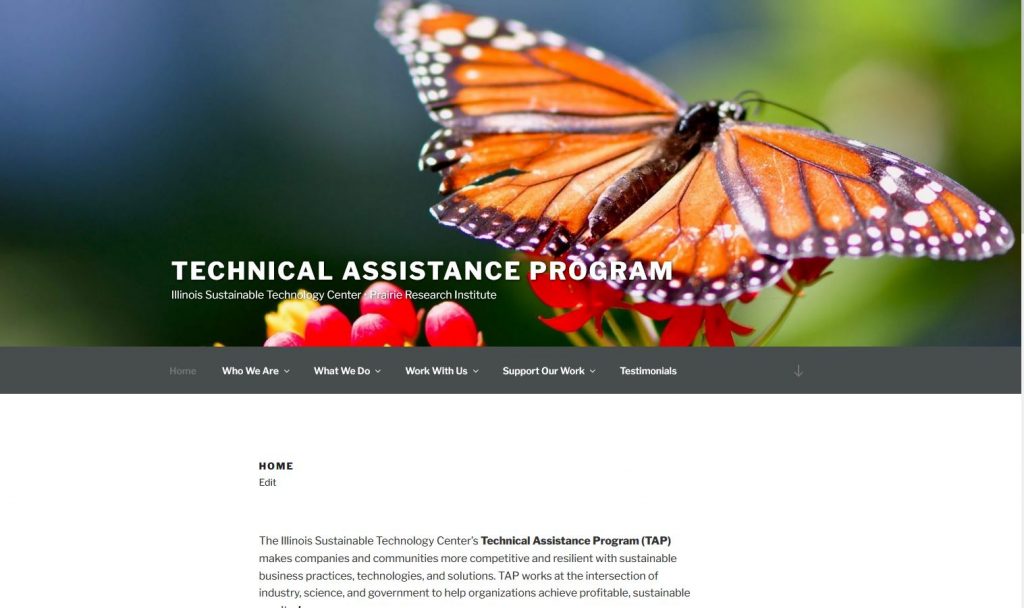
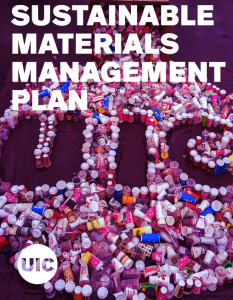 The
The 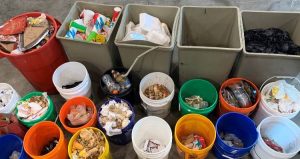 material categories.
material categories. 